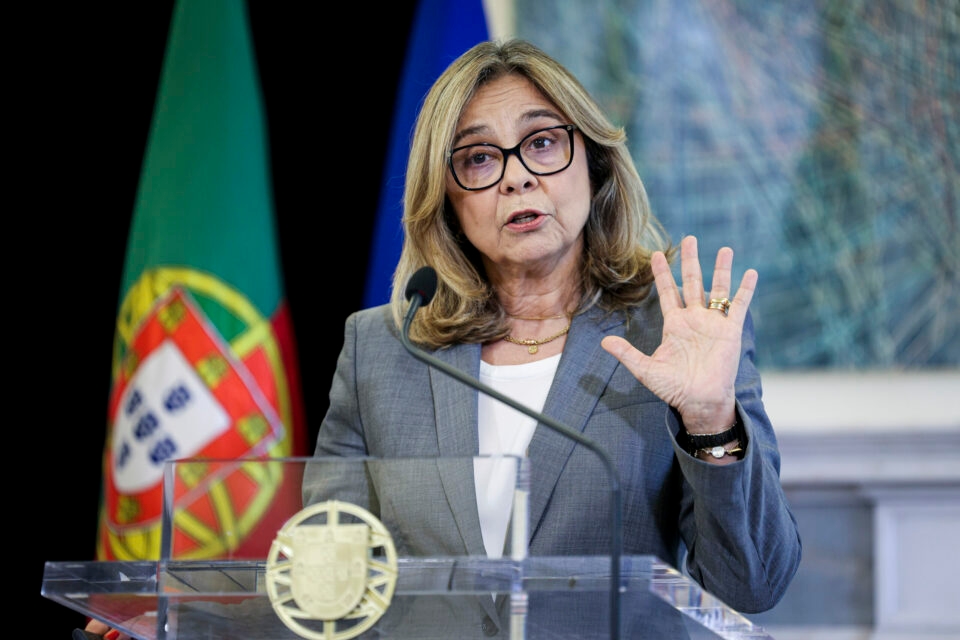Ana Paula Martins did not “receive a report” of anomalies in additional surgeries when she was president of Santa Maria

Health Minister Ana Paula Martins speaks to journalists after the Council of Ministers meeting on the Health Emergency and Transformation Plan, held at the Official Residence in São Bento, Lisbon, May 29, 2024. FILIPE AMORIM/LUSAfilipe a
The Ministry of Health stated today that Ana Paula Martins, when she was president of the Hospital de Santa Maria, “did not receive any reports” of anomalies related to the additional surgeries, highlighting that monitoring was carried out by the clinical director.
“The board of directors of the Santa Maria Local Health Unit (ULS), chaired by Ana Paula Martins – in office between February 1, 2023 and January 31, 2024 – did not receive any reports from hospital administrators of the services or service directors that could identify deviations or anomalies related to the Integrated Management System for Surgery Registrants” (SIGIC), the ministry said in a response sent to Lusa.
Ana Paula Martins' office also highlighted that the then clinical director, who remains in office on the current board of directors of the ULS of Santa Maria, “had close monitoring of all clinical activity, particularly additional surgery”.
At issue is the amount paid for surgeries performed during additional hours at the ULS in Santa Maria, which increased by more than 50% from 2022 to 2023, the year in which the current Minister of Health ran the hospital.
The data sent to Lusa by the hospital indicate that, in 2022, 9,402,120 euros were paid for the 7,495 surgeries performed during additional hours and, in 2023, the ULS paid 14,232,377 euros (+51.3%) for 9,971 of those surgeries.
In 2024, the number of surgeries during additional hours rose to 12,322, for which the ULS paid 14,510,334 euros.
Information from the hospital indicates that the average amount paid for surgery during additional hours fell from 1,427 euros in 2023 to 1,177 euros in 2024, a year in which the hospital broke records for surgeries, with a total of 37,647 performed, around a third of which during additional hours (12,322).
The ministry also stated that additional surgeries depend on agreements established between the boards of directors of the SNS units and the services, which contract the quantities to be performed and the percentage of distribution among the teams involved.
“In the case of the ULS in Santa Maria, there was an effort to operate on the largest number of patients waiting for surgery and who had accumulated on waiting lists during the pandemic period due to the suspension of scheduled surgeries,” added the same source.
In 2021, 2022 and 2023, several measures were taken by the Ministry of Health to recover waiting lists accumulated during the pandemic, such as reinforcing incentives for additional production and creating specific plans to recover surgical activity.
Last Friday, CNN revealed that a dermatologist at the Hospital de Santa Maria, in Lisbon, will have received around 400 thousand euros in 10 Saturdays of additional work in 2024, which led the Public Prosecutor's Office to open an investigation into this case and the General Inspectorate of Health Activities (IGAS) to proceed with another investigation into the additional surgical activity carried out in the SNS.
At issue is the Integrated Management System for Surgery Registrations (SIGIC) which the Government intends to replace with a new model – the National Information System for Access to Consultation and Surgery (SINACC).
In March of this year, the Ministry of Health created, through an order, a working group to prepare the extinction of SIGIC and the implementation of SINACC, one of the measures foreseen in the emergency and transformation plan for health that the Government approved in May 2024.
On Thursday, the Minister of Health, Ana Paula Martins, recognized gaps in SIGIC, as it is permeable to “perverse incentives” attributed to health professionals.
jornaleconomico


